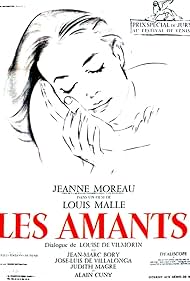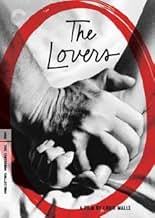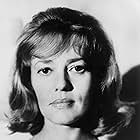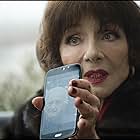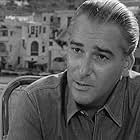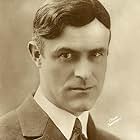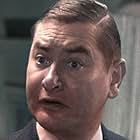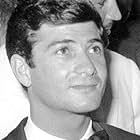IMDb RATING
7.2/10
6.1K
YOUR RATING
Saddled with a dull husband and a foolish lover, a woman has an affair with a stranger.Saddled with a dull husband and a foolish lover, a woman has an affair with a stranger.Saddled with a dull husband and a foolish lover, a woman has an affair with a stranger.
- Awards
- 2 wins & 1 nomination
José Luis de Vilallonga
- Raoul Florès
- (as José Villalonga)
Claude Mansard
- Marcelot
- (as Claude Mansart)
Jean-Claude Brialy
- Un Garçon a Manège
- (uncredited)
Patricia Maurin
- Catherine Tournier
- (uncredited)
- Director
- Writers
- All cast & crew
- Production, box office & more at IMDbPro
Storyline
Did you know
- TriviaAfter screening this film, Nico Jacobellis, manager of the Heights Art Theater in Cleveland Heights, Ohio, was charged with and convicted of possessing and exhibiting an obscene film. He appealed all the way to the US Supreme Court, which overturned the convictions, ruling that the film was not obscene. In a concurring opinion, Justice Potter Stewart made his famous pronouncement concerning what was pornography: "I know it when I see it, and the motion picture involved in this case is not that." Jacobellis v. Ohio, 378 U.S. 184, 197 (1964) (Stewart, J., concurring).
- GoofsWhen Jeanne and Bernard are sitting at the table at the end of the film, the camera moves towards them and becomes visible in the mirror on the wall.
- Quotes
Bernard Dubois-Lambert: "The moon rising in cloudless skies, suddenly bathed her in its silver beam."
Jeanne Tournier: Whom do you mean?
Bernard Dubois-Lambert: "She saw her image glowing in my eyes. Her smile like an angel's did gleam."
Jeanne Tournier: "The night is beautiful."
Bernard Dubois-Lambert: "The night is a woman."
- SoundtracksString Sextet No. 1 in B-flat major Op. 18 II. Andante ma moderato
(uncredited)
Written by Johannes Brahms
Conducted by Serge Baudo
Featured review
Paris in the 1950s. Film opens with Jeanne & Maggy, two glamorous high society aristocrats, watching a polo game, cheering the star player, the equally glamorous society page poster man Raoul Flores. Later, cozy snuggling between Raoul and Jeanne who, we learn when she goes home, is married to another man -- a prominent newspaper publisher, Henri. Over dinner, we observe quickly that Jeanne and Henri's marriage has been on deep freeze for sometime inside that capacious, ornately furnished countryside mansion. Henri, more or less convinced of Jeanne's affair with Raoul, insisted on having Jeanne invite Maggy and the polo player for the weekend. On her way back from Paris that weekend Jeanne's sports car breaks down. She's given a ride by archaeologist Bernard, definitely proletariat, definitely more comfortable studying rocks from diggings than at the polo field. Henri invites Bernard to stay for the weekend with Raoul and Maggy. At dinner Bernard shown to be an obvious outsider of this group. After everyone goes to bed, Jeanne wanders out into the night in her white, diaphanous nightgown, starting the forty-minute final sequence, the heart of the movie. This is the mildly sensuous moonlit epiphany for Jeanne that true love still can happen. (This sequence was deemed "shockingly erotic" in 1958 when the movie was released, becoming the main reason for calls for censorship, if not outright banning, in many countries). In a long sequence of lyrical black and white, day-for-night shots of shadows in the moonlight, a long walk on a vast field of shrubs and flowers, delicate embraces on a cozy boat floating unaided on a stream, Jeanne falls for Bernard's non-aristocratic, nonhigh-society, proletariat charms. Maybe it is the moonlight, or Bernard's open collar, working-archaeologist shirt, or his 2-cylinder mini-car, or the portentous bat that flew into the room when they were dining, but at the break of dawn, Jeanne decides to leave everything, including her sleeping daughter (another reason which shocked the critics and the Catholic church into condemning this movie) and drive away with Bernard into a new day aborning. (As far as I can remember this is the first movie I know where the central characters, at the fade-out, ride into the sunrise instead of into the sunset. One extra point for the then 25-year old Louis Malle). This movie has acquired its "classic status" for several reasons: It was a notable (and controversial!) work from a young director who was just starting to get noticed (Malle's fifth movie, his second for 1958). It portrayed succinctly the phoniness of the affluent as it showed a portrait of a woman confined within the rituals of her social status and then acting on her sudden feeling to get out. It presented a sex scene considered bold and shocking at that time (Jeanne's orgasm shown only through a close-up of her trembling hand is I think a clever idea from Malle). And it has Jeanne Moreau. (Although for me, anything with Jeanne Moreau is automatically on my personal "classic" list). Even by today's standards I think this is a very well-made movie if only for the subtlety with which Malle presented how these characters show the spectrum of their raw feelings. Moreau is "on every frame" (Malle's words from a 1994 interview) and perfectly so. She shows the build-up in Jeanne's simmering feelings so flawlessly, we actually feel the tension of when it's going to explode. Magre is pure delight as the fully-enjoy-the-moment Maggy. De Villalonga captures perfectly the unctuous charms of someone who's enraptured with his own image, endlessly watching and listening to himself in his own head. Cuny is admirably subtle in showing Henri as someone who has really stopped caring a long time ago, just enjoying watching these people make fools of themselves, eventually to choke on their own flirtations. Note his stiff indifference watching Bernard drive away with Jeanne. In the Moreau performances I've seen, I think this is one of her finest. In her every movie, the main tension is her eyes -- no one really knows what's going on behind that hypnotic stare. Love, passion, hatred, murder, tenderness, bewilderment? We always have to wait for the end of the movie. Some clever prefiguring clues Malle gives us: The bat flying in during their dinner causing a brief consternation -- their fortress has been breached, their aristocracy is not invulnerable anymore. Bernard's mini-car, slow but unstoppable in the highway -- stability, simple and quiet persistence. Bernard freeing the fishes from Henri's traps -- obviously about Jeanne. Excellent, luminous restoration from Criterion of this stunningly photographed black and white film by Henri Decae. Extras include two interviews from Malle and one from Jeanne Moreau. ##
- How long is The Lovers?Powered by Alexa
Details
- Release date
- Country of origin
- Language
- Also known as
- Ljubavnici
- Filming locations
- Lusigny-sur-Ouche, Côte-d'Or, France(Stop off at village on trip to Dijon)
- Production company
- See more company credits at IMDbPro
- Runtime1 hour 30 minutes
- Color
- Sound mix
- Aspect ratio
- 2.35 : 1
Contribute to this page
Suggest an edit or add missing content

